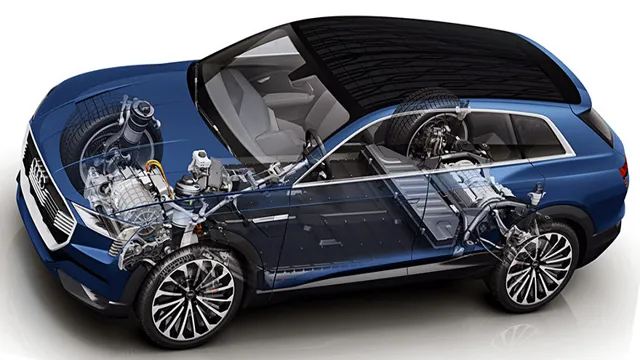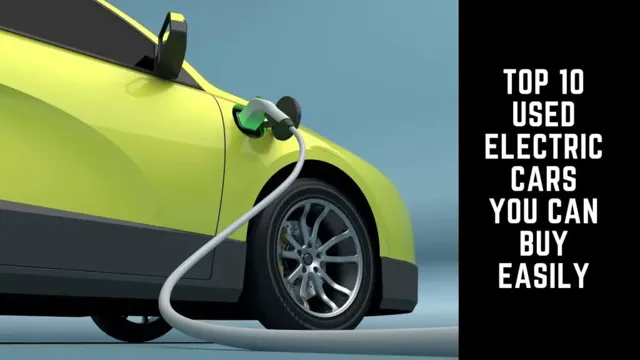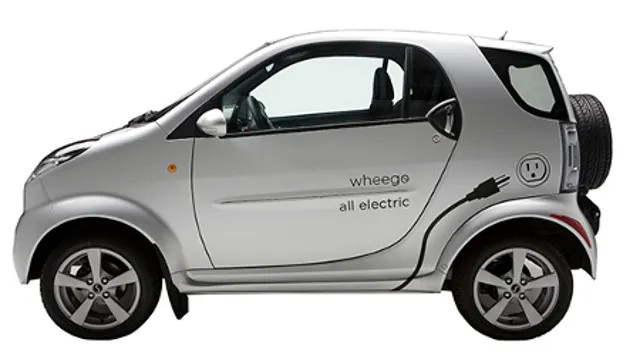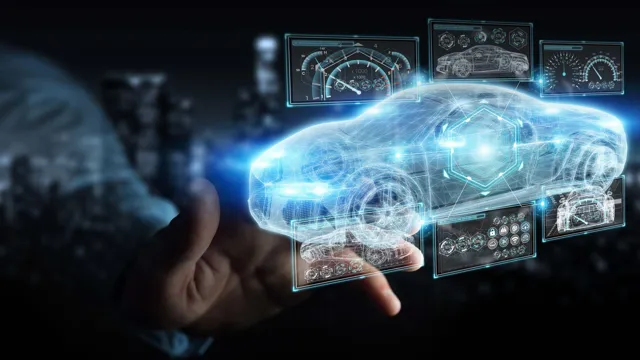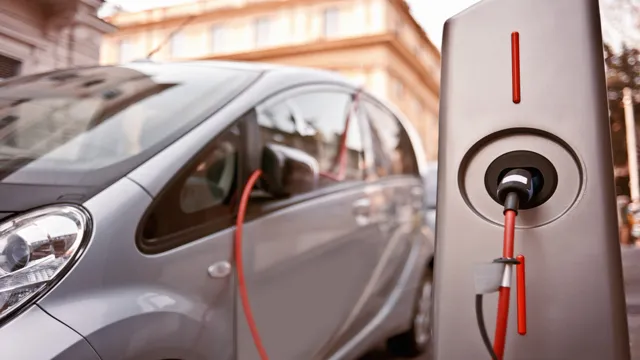Revolutionizing the Future: Electric Cars and the Latest Technologies
Electric cars are transforming the way we travel, and there’s a good reason why they are gaining popularity. These eco-friendly vehicles offer a sustainable solution for reducing carbon emissions while providing a smooth and comfortable ride for drivers. With the evolution of technology, electric cars have made immense progress in recent years, making them a viable option for everyday use.
The rise of electric cars marks a new era in transportation that is revolutionizing our world. No longer are we solely dependent on fossil fuels to power our vehicles, thanks to advancements in battery technology and the availability of charging stations. Plus, the maintenance cost is significantly lower than that of traditional gasoline-powered cars.
Electric cars are not only environmentally friendly, but they also offer excellent performance and safety features. With instant torque, electric motors provide a responsive and fast acceleration, and with regenerative braking technology, they can recapture some of the energy used while braking. Additionally, electric cars have a lower center of gravity, which helps enhance stability and reduce the risk of accidents.
The adoption of electric cars in today’s society is also driven by the increasing public awareness of the importance of reducing carbon emissions and the associated impact on climate change. Consumers are becoming more eco-conscious and are willing to make choices that align with their values. When choosing an electric car, drivers are not only investing in the future of transportation but also contributing to a cleaner and greener planet.
In conclusion, the power of electric cars is transforming the transportation industry and paving the way toward a sustainable future. With innovative technology and growing consumer demand, it’s clear that electric cars will continue to be an essential part of the conversation around eco-friendly transportation. So, are you ready to join the electric car revolution?
The Growing Trend
It’s no secret that technology is rapidly advancing and that electric cars are growing in popularity. With the push towards sustainable energy, it’s no wonder why more and more people are looking towards electric cars as a viable option. While the initial cost of buying an electric car may be higher than its traditional counterpart, they offer long-term savings through lower fuel and maintenance costs.
Additionally, electric cars are much better for the environment as they do not emit harmful pollutants like traditional cars do. The technology used in electric cars is also constantly improving, with longer battery life and faster charging times being developed. As more companies invest in this industry, we can expect to see even more growth in the electric car market in the coming years.
Sales and adoption rates of electric vehicles
Electric vehicles are becoming increasingly popular. In recent years, sales and adoption rates have been growing at a steady pace, and this trend shows no signs of slowing down. There are many reasons why people are choosing EVs over traditional gasoline-powered vehicles.
One major factor is the environmental impact. EVs produce much less pollution than gas-powered cars, making them a more eco-friendly choice. Additionally, EVs can be more cost-effective in the long run, as they require less maintenance and can be powered by electricity, which is often cheaper than gasoline.
As more people become aware of these benefits, the demand for electric vehicles will only continue to rise. So, if you’re considering purchasing a new car, it might be worth looking into an electric one.
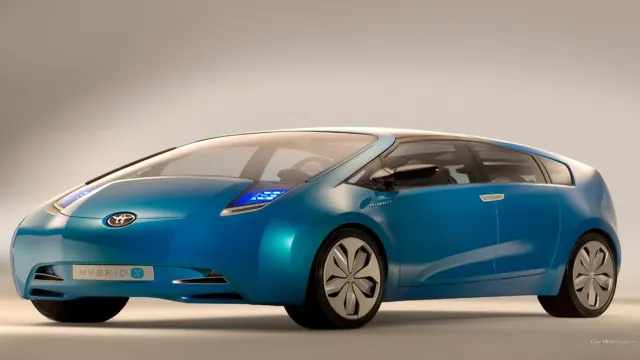
Factors contributing to this trend
The growing trend of remote work is not a coincidence. In fact, there are several factors that have contributed to its popularity. First and foremost, technology has made it possible for many workers to complete their tasks from a remote location.
With cloud-based software and communication tools, employees can collaborate and communicate with their colleagues as though they were in the same room. Additionally, many companies have realized that offering remote work options can lead to increased employee satisfaction and retention. By offering a flexible work environment, companies can attract and retain talent that may not have been available to them otherwise.
Finally, the COVID-19 pandemic has accelerated the growth of remote work, as many companies were forced to adapt to remote work trends to ensure their employees’ safety. All in all, these factors have contributed to the growth of remote work and will likely continue to do so in the future.
The Technology Behind Electric Cars
Electric cars are becoming more popular than ever before, and the technology behind them is constantly advancing. Essentially, electric cars are powered by large batteries that provide energy to electric motors, which then turn the wheels of the car. One major advantage of electric cars is that they produce zero emissions, making them much better for the environment than traditional gasoline-powered cars.
The batteries used in electric cars are often made of lithium-ion, which allows for a longer driving range and quicker charging times. In addition to batteries, electric cars also utilize regenerative braking technology, which captures energy that would otherwise be lost during braking and sends it back to the car’s battery. Overall, the technology behind electric cars is constantly evolving, making them a promising option for the future of transportation.
How electric cars work
Electric cars are becoming more popular as people become increasingly aware of the impact of fossil fuels on the environment. But how do these cars work? Unlike traditional cars, electric vehicles are powered by rechargeable batteries instead of internal combustion engines. These batteries take in electricity from an external source, such as a charging station or an outlet in a home or garage.
Once the battery is charged, the car can be driven for several hours, depending on the type of battery and the driving conditions. Electric cars also use regenerative braking, which means that when the car slows down, the kinetic energy is harnessed and used to recharge the battery. This technology not only saves energy but also reduces wear and tear on the brakes.
Additionally, electric cars may use one or more electric motors to power the wheels, instead of a traditional transmission. This advanced technology means that the acceleration of electric cars can be much smoother and faster than that of traditional cars. Overall, electric cars are a promising solution for reducing greenhouse gas emissions and making transportation more efficient.
Types of electric vehicles available in the market
The technology behind electric cars is fascinating and continually innovating. Central to an electric vehicle’s technology is its battery system. Lithium-ion batteries are commonly used in contemporary electric cars as they provide high energy density and are lighter than other battery types.
Electric vehicles also use regenerative braking, where the electric motor helps to slow down the car and charge the battery simultaneously. Moreover, many electric cars are equipped with smart systems that allow for more efficient energy usage, such as adjusting the air conditioning or heating system according to the battery’s charge level and optimizing the motor’s performance. This technology has made electric cars more practical and feasible for daily use, and with a variety of models available in the market, there is an option for every lifestyle.
From compact hatchbacks to luxury SUVs, electric cars offer a greener alternative to traditional combustion engine vehicles.
Advantages and disadvantages of electric cars compared to gasoline vehicles
The technology behind electric cars has come a long way in recent years and it has several advantages over traditional gasoline vehicles. Firstly, electric cars are much more environmentally friendly as they emit no harmful pollutants and run solely on electricity. This means that they have lower carbon footprints and contribute less to air pollution.
Secondly, electric cars are cheaper to operate as they require less maintenance and have lower running costs. Thirdly, they are much quieter and smoother to drive due to their lack of an internal combustion engine. However, there are also a few disadvantages to electric cars.
They require a significant initial investment and the charging infrastructure may not be as widespread as the traditional gas stations. They may also have limited range and require longer charging times. Nonetheless, with advances in battery technology and the growing awareness of environmental issues, electric cars are becoming an increasingly attractive mode of transportation.
The Future of Electric Cars
Looking to the future of electric cars, we can expect significant advances in technology that will improve their efficiency, range, and charging times. In particular, advancements in battery technology will play a crucial role, with researchers working to develop new materials and designs that will allow for longer-lasting and faster-charging batteries. Additionally, new innovations in electric drivetrains and charging infrastructure will make electric cars more practical and accessible for more people.
The keyword “technology electric cars” will continue to evolve and impact the industry, with new features such as autonomous driving and smart charging becoming more common. As these advances take hold, we can expect electric cars to become more mainstream, making a lasting impact on how we travel and reducing our carbon footprint in the process.
Predictions for the future of electric cars
As technology continues to advance, electric cars are becoming increasingly popular and convenient. They are cleaner for the environment and cheaper to maintain than traditional gas-powered vehicles. The market for electric cars has already seen immense growth, and predictions suggest that this trend will continue in the future.
Experts believe that electric cars will become more affordable and accessible to a wider range of consumers. Innovations in battery technology will allow electric cars to travel further on a single charge than ever before. As a result, many consumers may make the switch from gas-powered cars to electric cars in the near future.
Additionally, as governments around the world place more emphasis on reducing carbon emissions, incentives for purchasing electric cars will likely become more prevalent, further driving demand for these vehicles. It is an exciting time for the electric car industry, and the future looks bright for this sustainable mode of transportation.
Impact on the environment and society as a whole
The impact of electric cars on the environment and society is monumental. As we move towards a more sustainable future, these vehicles play a crucial role in reducing our carbon footprint and increasing energy efficiency. With zero emissions, electric cars dramatically improve air quality, leading to reduced noise and pollution in urban areas.
Not only do they benefit the environment, but they also provide significant economic advantages, including reducing our dependence on oil imports and creating job opportunities in the growing field of renewable energy. However, the adoption of these vehicles on a widespread scale requires significant investment in infrastructure, such as battery-charging stations and an overhaul of the national power grid. Despite this, the future of electric cars is bright and promising, with technological advancements and increased consumer demand driving the industry forward.
As we continue to move toward a more sustainable and eco-friendly future, the role of electric cars will only continue to grow in importance, making them an integral part of the solution to the environmental crisis we face today.
Conclusion
In conclusion, electric cars are the bridge between sustainable energy and modern transportation. They allow us to cut down on harmful emissions and reduce our carbon footprint without sacrificing style or performance. It’s electrifying to think about all the possibilities that come with this new technology.
From sleek Tesla models to affordable options like the Nissan Leaf, electric cars are driving the industry forward. So let’s rev up our engines, charge our batteries, and hit the road towards a greener future. Because when it comes to electric cars, the future is bright and the power is electric!”
FAQs
What are electric cars?
Electric cars are vehicles that run on electricity rather than gasoline or diesel fuel. They are powered by one or more electric motors and store energy in rechargeable batteries.
How do electric cars work?
Electric cars work by using a battery to power an electric motor which turns the wheels and powers the vehicle. They can be charged using a standard electrical outlet or a dedicated charging station.
Are electric cars more environmentally friendly than traditional cars?
Yes, electric cars are generally considered to be more environmentally friendly than traditional cars, because they emit no tailpipe emissions and have lower overall emissions when the source of electricity is taken into account.
What is the driving range of an electric car?
The driving range of an electric car depends on the specific model and the capacity of the battery. Most electric cars can travel between 100-300 miles on a single charge, but some models have a range of up to 500 miles.
